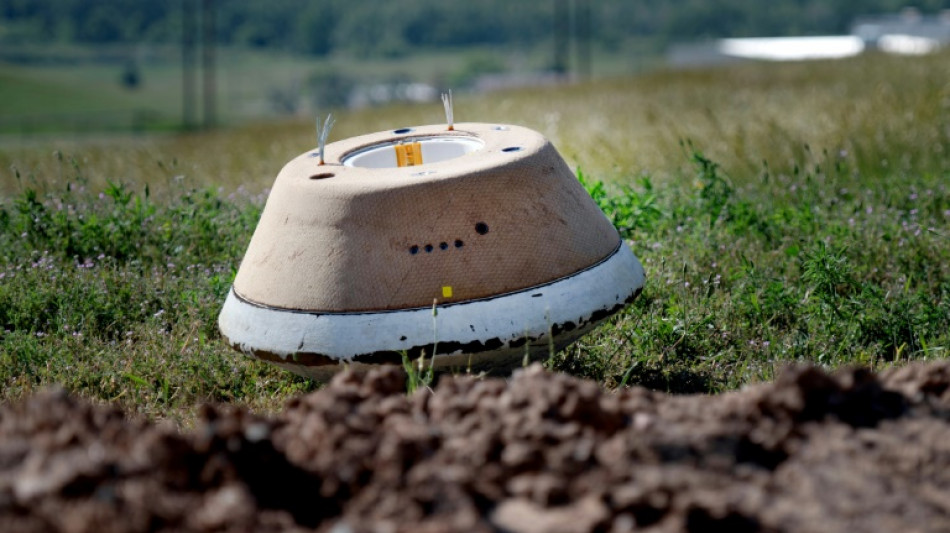
-
 Salah unaffected by Liverpool turmoil ahead of AFCON opener - Egypt coach
Salah unaffected by Liverpool turmoil ahead of AFCON opener - Egypt coach
-
Goggia eases her pain with World Cup super-G win as Vonn takes third

-
 Goggia wins World Cup super-G as Vonn takes third
Goggia wins World Cup super-G as Vonn takes third
-
Cambodia says Thai border clashes displace over half a million

-
 Kremlin denies three-way US-Ukraine-Russia talks in preparation
Kremlin denies three-way US-Ukraine-Russia talks in preparation
-
Williamson says 'series by series' call on New Zealand Test future

-
 Taiwan police rule out 'terrorism' in metro stabbing
Taiwan police rule out 'terrorism' in metro stabbing
-
Australia falls silent, lights candles for Bondi Beach shooting victims

-
 DR Congo's amputees bear scars of years of conflict
DR Congo's amputees bear scars of years of conflict
-
Venison butts beef off menus at UK venues

-
 Cummins, Lyon doubts for Melbourne after 'hugely satsfying' Ashes
Cummins, Lyon doubts for Melbourne after 'hugely satsfying' Ashes
-
'It sucks': Stokes vows England will bounce back after losing Ashes

-
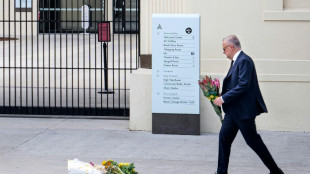 Australia probes security services after Bondi Beach attack
Australia probes security services after Bondi Beach attack
-
West Indies need 462 to win after Conway's historic century

-
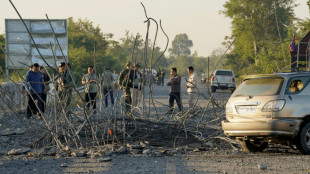 Thai border clashes displace over half a million in Cambodia
Thai border clashes displace over half a million in Cambodia
-
Australia beat England by 82 runs to win third Test and retain Ashes

-
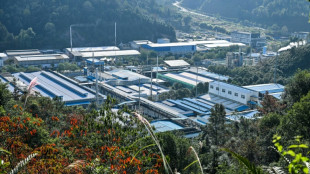 China's rare earths El Dorado gives strategic edge
China's rare earths El Dorado gives strategic edge
-
Japan footballer 'King Kazu' to play on at the age of 58

-
 New Zealand's Conway joins elite club with century, double ton in same Test
New Zealand's Conway joins elite club with century, double ton in same Test
-
Australian PM orders police, intelligence review after Bondi attack
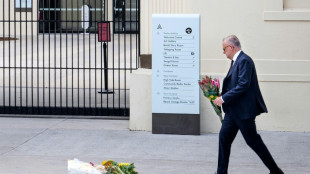
-
 Durant shines as Rockets avenge Nuggets loss
Durant shines as Rockets avenge Nuggets loss
-
Pressure on Morocco to deliver as Africa Cup of Nations kicks off

-
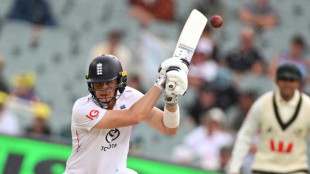 Australia remove Smith as England still need 126 to keep Ashes alive
Australia remove Smith as England still need 126 to keep Ashes alive
-
Myanmar mystics divine future after ill-augured election

-
 From the Andes to Darfur: Colombians lured to Sudan's killing fields
From the Andes to Darfur: Colombians lured to Sudan's killing fields
-
Eagles win division as Commanders clash descends into brawl

-
 US again seizes oil tanker off coast of Venezuela
US again seizes oil tanker off coast of Venezuela
-
New Zealand 35-0, lead by 190, after racing through West Indies tail

-
 West Indies 420 all out to trail New Zealand by 155
West Indies 420 all out to trail New Zealand by 155
-
Arteta tells leaders Arsenal to 'learn' while winning

-
 Honour to match idol Ronaldo's Real Madrid calendar year goal record: Mbappe
Honour to match idol Ronaldo's Real Madrid calendar year goal record: Mbappe
-
Dupont helps Toulouse bounce back in Top 14 after turbulent week

-
 Mbappe matches Ronaldo record as Real Madrid beat Sevilla
Mbappe matches Ronaldo record as Real Madrid beat Sevilla
-
Gyokeres ends drought to gift Arsenal top spot for Christmas

-
 Arsenal stay top despite Man City win, Liverpool beat nine-man Spurs
Arsenal stay top despite Man City win, Liverpool beat nine-man Spurs
-
US intercepts oil tanker off coast of Venezuela

-
 PSG cruise past fifth-tier Fontenay in French Cup
PSG cruise past fifth-tier Fontenay in French Cup
-
Isak injury leaves Slot counting cost of Liverpool win at Spurs

-
 Juve beat Roma to close in on Serie A leaders Inter
Juve beat Roma to close in on Serie A leaders Inter
-
US intercepts oil tanker off coast of Venezuela: US media

-
 Haaland sends Man City top, Liverpool beat nine-man Spurs
Haaland sends Man City top, Liverpool beat nine-man Spurs
-
Epstein victims, lawmakers criticize partial release and redactions
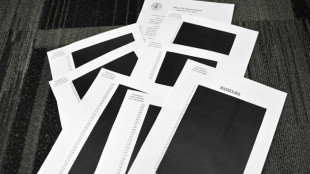
-
 Leverkusen beat Leipzig to move third in Bundesliga
Leverkusen beat Leipzig to move third in Bundesliga
-
Lakers guard Smart fined $35,000 for swearing at refs

-
 Liverpool sink nine-man Spurs but Isak limps off after rare goal
Liverpool sink nine-man Spurs but Isak limps off after rare goal
-
Guardiola urges Man City to 'improve' after dispatching West Ham

-
 Syria monitor says US strikes killed at least five IS members
Syria monitor says US strikes killed at least five IS members
-
Australia stops in silence for Bondi Beach shooting victims
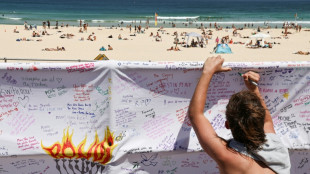
-
 Olympic champion Joseph helps Perpignan to first Top 14 win despite red card
Olympic champion Joseph helps Perpignan to first Top 14 win despite red card
-
Zelensky says US mooted direct Ukraine-Russia talks on ending war


Historic NASA asteroid mission set for perilous return
NASA's first mission to retrieve an asteroid sample and return it to US soil is expected to reach a perilous finale on Sunday with a descent into the Utah desert.
Scientists hope the material -- possibly the most ever retrieved by such a mission -- will provide humanity with a better understanding on the formation of our solar system and how Earth became habitable.
The US space probe OSIRIS-REx, launched in 2016, scooped up the sample from an asteroid called Bennu almost three years ago.
Touchdown is scheduled for Sunday at around 9:00 am local time (1500 GMT), at a military testing site in the western state.
Some four hours earlier, at about 67,000 miles (108,000 kilometers) away from Earth, the Osiris-Rex probe will release the capsule containing the sample.
The final descent lasts 13 minutes: the capsule enters the atmosphere at a speed of around 27,000 miles (43,000 kilometers) per hour and reaches a maximum temperature of 5,000 degrees Fahrenheit (2,800 degrees Celsius), NASA said.
If all goes well, two successive parachutes will bring the capsule to a soft landing on the desert floor, where it will be retrieved by prepositioned staff.
Hitting the target area of 250 square miles (650 square kilometers) is like "throwing a dart across the length of a basketball court and hitting the bullseye," Rich Burns, OSIRIS-REx project manager at NASA, told a press conference last month.
The night before landing, controllers will have a final opportunity to abort if conditions are not correct. If so, the probe would then circle the Sun before its next attempt -- in 2025.
"Sample return missions are hard. There's a number of things that can go wrong," said Sandra Freund, Lockheed Martin's OSIRIS-REx program manager.
Teams have meticulously prepared for the capsule's return -- even a "hard landing scenario" according to Freund -- in order to preserve the asteroid material in its pristine form.
A final dress rehearsal took place in August, with a replica capsule dropped from a helicopter.
- Texas 'clean room' -
Once the capsule is on the ground, a team will check its condition before placing it in a net, which will be lifted by helicopter and taken to a temporary "clean room."
The next day, the sample will be flown to a highly specialized laboratory at NASA's Johnson Space Center in Houston, Texas.
Scientists will open the capsule and separate pieces of the rock and dust over a period of days.
Some of the sample will be for studies now, with the rest stored away for future generations equipped with better technology -- a practice first started during the Apollo missions to the Moon.
NASA is expected to unveil its first results during a press conference on October 11.
Obtaining the sample involved a high-risk operation in October 2020: the probe came into contact with the asteroid for a few seconds, and a blast of compressed nitrogen was emitted to raise the dust sample which was then captured.
Bennu had surprised scientists during sample collection: during the few seconds of contact with the surface, the probe's arm had sunk into the soil, revealing a much lower density than expected.
However it allowed NASA to take far more than the initial target of 60 grams -- the agency thinks the sample could be up to some 250 grams of material.
That mass would be the "largest from beyond the orbit of the moon" NASA program executive Melissa Morris said.
- 'Seeds of life' -
The first samples brought to Earth by asteroids were carried out by Japanese probes in 2010 and 2020, with the latter found to contain uracil, one of the building blocks of RNA.
The finding lent weight to a longstanding theory that life on Earth may have been seeded from outer space when asteroids crashed into our planet carrying fundamental elements.
Asteroids like Bennu and Ryugu, one of the asteroids studied by Japan, may look similar but "can be very, very different," according to Morris.
Asteroids are interesting because they are composed of the original materials of the solar system.
The cupful of rocks may hold "clues we believe to some of the deepest questions that we asked ourselves as humanity," said University of Arizona at Tucson's Dante Lauretta, principal investigator on OSIRIS-REx.
The samples may represent the "seeds of life that these asteroids delivered at the beginning of our planet, leading to this incredible biosphere, biological evolution and to us being here today."
Bennu, 500 meters in diameter, orbits the Sun and approaches Earth every six years.
There is a small chance (1 in 2,700) that it will collide with the Earth in 2182, which would have a catastrophic impact.
NASA has studied ways to divert an asteroid's trajectory, and a better understanding of Bennu's composition could therefore prove useful.
F.Bennett--AMWN



